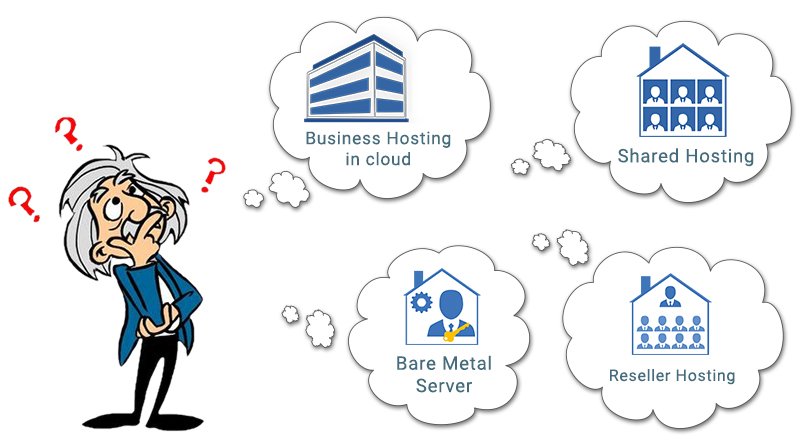3 Things to Consider Before Choosing a Hosting Plan

There are 1,197,982,359 websites in the world as of January 2021, and every single one needs a host to support them on the World Wide Web. You will need a good hosting plan too if you want to optimally run your website. But hosting plans come in all shapes and sizes. Consider the following points before choosing one:
-
Does Your Hosting Plan Include a Domain Name?
The end of 2020 saw approximately 370.7 million Top Level Domain (TLD) registrations. Out of these, 160.6 million were country code TLD (.in, .uk, .jp, etc.). Without a domain name, there will be no way for your visitors to access your website, even if you host one on a server. Look carefully at the array of plans offered by your hosting provider. Is there a free domain name provided? Is there a way to migrate an existing domain to your hosting plan? If yes, then what is the price for domain migration and hosting?
Also, keep in mind that DNS is the system used to convert a domain name into the corresponding server IP address. If possible, talk to your provider’s tech support and enquire about DNS compatibility. Does your domain appear in the most common and reliable DNS directories, such as Google DNS or Microsoft DNS?
Before you buy domain and hosting, ask yourself what type of domain name you want? Do you want a generic one (.com, .org etc.) or a country domain (.in, .uk, .us etc.)? Use your host’s domain finder and find out whether the domain type of your choice is offered. Also, you need to pay a yearly fee for your chosen domain name. Choose a hosting service that offers at least the first year of domain registration free of charge.
-
Do They Offer SSD Storage?
A Solid State Drive (SSD) stores data in a network of flash memory circuits, which are called NAND. With every write, NAND cells rearrange bits in such a way that they are maintained without any electrical power. SSDs are slowly becoming the new norm, since they offer multiple benefits over HDDs.
The amount of SSD storage can be limited or unlimited, depending on the domain and hosting plan you buy. The exact plan you choose will definitely be governed by the hosting price and your budget, but ensure you get SSD, rather than HDD storage, since it is more reliable. It’ll provide enormous speed for your website too. If the server SSDs are built from TLC (Triple Layer Cells) NANDs, it’ll improve both reading and writing speed, improving the buffer time for website interaction. This is great for the user experience of site visitors.
-
Do They Fulfil Your Bandwidth Requirement?
To calculate your bandwidth requirement, you need to take into consideration your average web page size and the maximum number of visitors your website is likely to get at the same time. Once you have obtained a rough estimate, look at the hosting plans on offer. Do they meet your maximum bandwidth requirements?
Even if the plans do meet your requirement, remember that bandwidth is often affected by the type of hosting you choose. For instance, your plan mentions that your website will be housed on a server with 1 TB bandwidth. But if the server is being shared by other sites, this bandwidth will be distributed among all the websites on that server.
Remember, choosing the right hosting plan can make or break the experience that potential customers get of your website. So, do your research well before making a final decision.








